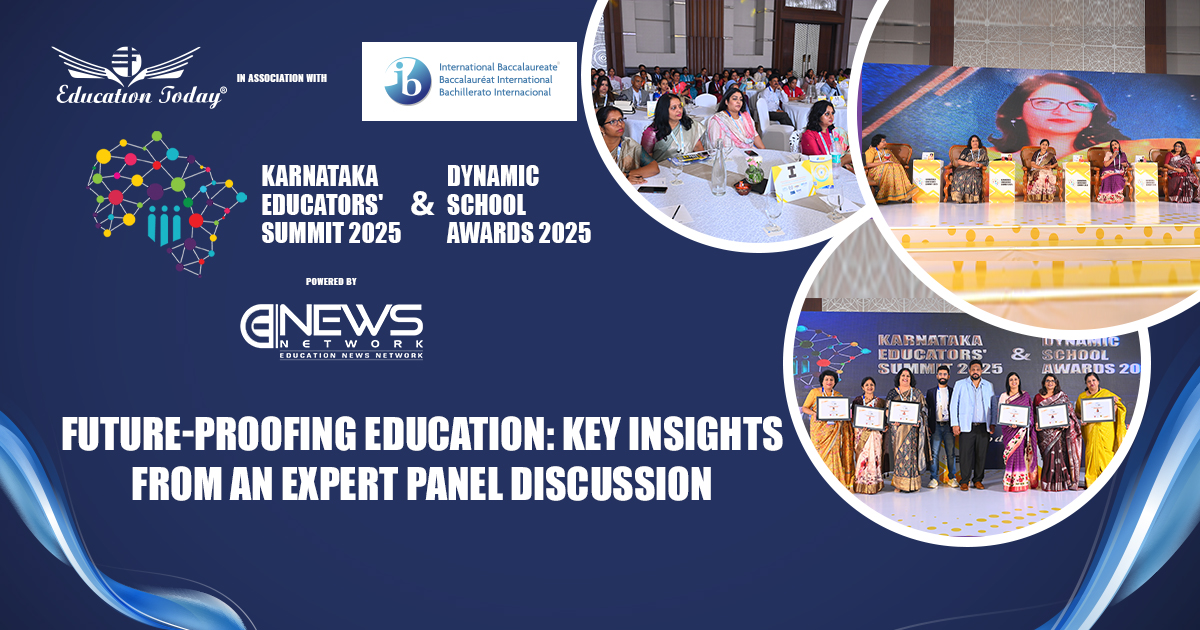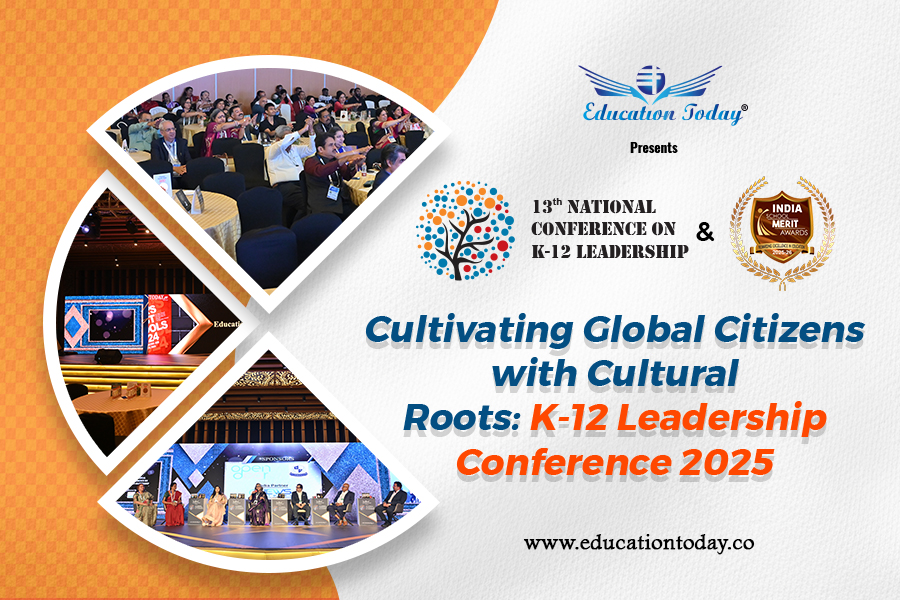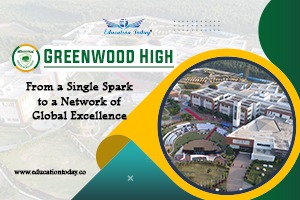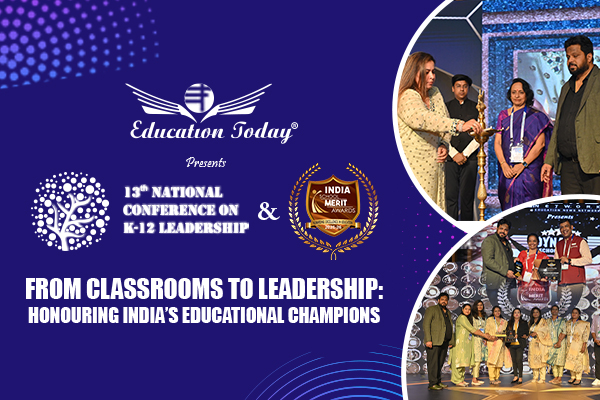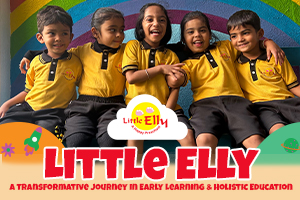Future-Proofing Education: Insights from the Karnataka Educators’ Summit & Dynamic School Awards 2025
The Karnataka Educators’ Summit & Dynamic School Awards 2025, hosted by EducationToday in association with the International Baccalaureate (IB) and powered by Education News Network, convened some of the most visionary minds in Indian education. Held at the Radisson Blu, Mysuru on October 14, 2025, the summit brought together educators, policymakers, and thought leaders to deliberate on the future of schools in an era of rapid technological evolution. Among the highlights was Panel 1: Future-Proofing Schools: Blending Pedagogy with Emerging Technology, which explored how traditional teaching methods can harmoniously coexist with, and be enhanced by, digital innovation.
Moderated by Dr. Manila Carvalho, Principal of Delhi Public School, Bangalore East, the panel featured an illustrious lineup:
Her opening statement set the tone for a discussion that was both practical and philosophical, emphasising that technology is not a replacement for teachers but an enabler of enriched learning experiences.
Reshma emphasised the prevalence of blended learning, where traditional classroom instruction is complemented by digital platforms. “Flipped classrooms, AI-curated videos, and interactive sessions allow students to engage at their own pace while fostering collaborative discussions and hands-on activities,” she noted.
Virtual learning, augmented reality, and AI-powered tools are now transforming abstract concepts into tangible experiences. For example, AI can convert textbooks into audiobooks, making learning accessible for visually impaired students. Inquiry-based and project-based learning are increasingly being leveraged to cultivate critical thinking, research skills, and digital literacy, helping students become responsible users of technology while balancing content, pedagogy, and technological tools.
“How many educators are familiar with RUST, a fundamental programming language?” she asked rhetorically. “Being aware of technological basics is essential, as students are often ahead of the curve.”
Sarada’s observation struck a chord: technology is both a resource and a challenge, and educators must be equipped to navigate this landscape confidently.
She argued that in the rush to make students technologically proficient, schools risk neglecting these softer skills, which are critical for holistic development. The challenge for educators, she suggested, is to maintain equilibrium—embracing digital innovation while nurturing character and ethical reasoning.
By combining advanced digital tools with experiential learning, educators can foster environments that accommodate diverse learning styles, ensuring that no student is left behind. “Experiential learning should be a part of everyday education, not a peripheral activity,” she affirmed.
Highlighting the need for innovation in education, Dr Devi spoke about the importance of teachers bringing rich content, fresh ideas, and creative methods into the classroom, thereby reducing dependency on technology. She pointed out that education is no longer defined by marks and scores but by the passion and dedication a teacher invests in each lesson. When a teacher teaches with heart, mind, and soul, technology can never replace them.
Turning to modern challenges, Dr Devi addressed the omnipresence of social media. Today’s tech-savvy “alpha generation” lives much of its life online, often blurring the boundaries between personal and academic spaces. “Teachers must be mindful of their digital footprint,” she advised, adding that privacy management and professional boundaries are vital to maintaining credibility and dignity.
She observed that while students aspire to connect with educators online, teachers must remain conscious of their online presence. Dr. Manila Carvalho agreed, reinforcing that educators are always role models, both inside and outside the classroom.
The discussion underscored that future-proofing education is less about chasing the latest gadget and more about cultivating adaptable, thoughtful, and morally grounded individuals. It is about preparing educators to navigate complex technological ecosystems while ensuring that students emerge not just as proficient users of AI and digital tools, but as empathetic, curious, and resilient citizens of tomorrow.
As the Karnataka Educators’ Summit & Dynamic School Awards 2025 demonstrated, the journey toward this vision is ongoing. Schools must balance innovation with introspection, excitement with caution, and efficiency with humanity. In doing so, they can truly blend pedagogy with emerging technology, ensuring that learning remains transformative, inclusive, and enduring.
Moderated by Dr. Manila Carvalho, Principal of Delhi Public School, Bangalore East, the panel featured an illustrious lineup:
- Dr. B. Gayethri Devi, Principal, Little Flower Public School
- Dr. Sarada Chandrasekaran, Director, Whitefield Global School
- Vamsheepriya Amar, Principal, MVJ International School
- Dr. Reshma Ganesh, Founder Principal & Campus Director, SSRVM Bengaluru East
- Ciny V T, Principal, Dayananda Sagar Public School
Setting the Stage: Pedagogy in a Technological Era
Dr. Manila Carvalho opened the session with a reflection that resonated deeply with the audience: “We are living in an era defined by change. Technology is transforming every facet of life, and education is no exception. The pressing question today is not whether technology should be integrated into teaching, but how time-tested pedagogical methods can be meaningfully blended with emerging tools.”Her opening statement set the tone for a discussion that was both practical and philosophical, emphasising that technology is not a replacement for teachers but an enabler of enriched learning experiences.
Technology as an Enabler, Not a Replacement
Dr. Reshma Ganesh of SSRVM Bengaluru East elaborated on this premise, highlighting the nuanced role of technology in contemporary classrooms. “We stand at the intersection where pedagogy meets technology,” she observed. “The success of education does not hinge on the mere availability of digital tools. Rather, it is determined by the frameworks we adopt and the teaching practices we employ to anchor them.”Reshma emphasised the prevalence of blended learning, where traditional classroom instruction is complemented by digital platforms. “Flipped classrooms, AI-curated videos, and interactive sessions allow students to engage at their own pace while fostering collaborative discussions and hands-on activities,” she noted.
Virtual learning, augmented reality, and AI-powered tools are now transforming abstract concepts into tangible experiences. For example, AI can convert textbooks into audiobooks, making learning accessible for visually impaired students. Inquiry-based and project-based learning are increasingly being leveraged to cultivate critical thinking, research skills, and digital literacy, helping students become responsible users of technology while balancing content, pedagogy, and technological tools.
AI in the Classroom: A Double-Edged Sword
Dr. Sarada Chandrasekaran shared a memorable anecdote, likening AI to a “shark that enhances the taste of seafood.” Just as the shark elevates the culinary experience, AI can enhance teaching practices, she explained. Yet, she cautioned that teachers must be prepared for students arriving with pre-existing knowledge and questions derived from AI.“How many educators are familiar with RUST, a fundamental programming language?” she asked rhetorically. “Being aware of technological basics is essential, as students are often ahead of the curve.”
Sarada’s observation struck a chord: technology is both a resource and a challenge, and educators must be equipped to navigate this landscape confidently.
Balancing Technology with Emotional Intelligence
Ciny V T, Principal of Dayananda Sagar Public School, offered a counterpoint to the technology-driven discourse. “What we see now is only a fraction of what the future holds,” she said. “While expertise in technology is valuable, it is equally important to cultivate emotional intelligence, resilience, and decision-making skills in our students.”She argued that in the rush to make students technologically proficient, schools risk neglecting these softer skills, which are critical for holistic development. The challenge for educators, she suggested, is to maintain equilibrium—embracing digital innovation while nurturing character and ethical reasoning.
Experiential and Inclusive Learning
Vamsheepriya Amar underscored the relevance of NEP 2020 and experiential learning, emphasising that learning must be both “hands-on and minds-on.” She elaborated on the What-How-Why framework, which encourages inclusivity by presenting content in multiple formats, aligning with principles of Universal Design for Learning (UDL).By combining advanced digital tools with experiential learning, educators can foster environments that accommodate diverse learning styles, ensuring that no student is left behind. “Experiential learning should be a part of everyday education, not a peripheral activity,” she affirmed.
Navigating Social Media and Student Engagement
Dr. Gayetri Devi emphasized that a classroom today feels empty without the presence of a teacher. She stated that while technology has become an integral part of modern life, the human touch, eye contact, and emotional connection between teachers and students remain irreplaceable. According to her, a teacher’s presence is mandatory for meaningful learning.Highlighting the need for innovation in education, Dr Devi spoke about the importance of teachers bringing rich content, fresh ideas, and creative methods into the classroom, thereby reducing dependency on technology. She pointed out that education is no longer defined by marks and scores but by the passion and dedication a teacher invests in each lesson. When a teacher teaches with heart, mind, and soul, technology can never replace them.
Turning to modern challenges, Dr Devi addressed the omnipresence of social media. Today’s tech-savvy “alpha generation” lives much of its life online, often blurring the boundaries between personal and academic spaces. “Teachers must be mindful of their digital footprint,” she advised, adding that privacy management and professional boundaries are vital to maintaining credibility and dignity.
She observed that while students aspire to connect with educators online, teachers must remain conscious of their online presence. Dr. Manila Carvalho agreed, reinforcing that educators are always role models, both inside and outside the classroom.
Closing Reflections: Mastery, Coexistence, and Values
As the panel drew to a close, the discussion shifted toward the ethical and strategic integration of technology in education, emphasising the responsibilities of educators in shaping a future-ready generation.- Dr. Sarada Chandrasekaran urged a perspective of mindful control: mastery of AI, she noted, is essential—educators and students must wield technology, not be dominated by it. Expanding on this, Vamsheepriya Amar advocated for a sustainable coexistence with AI, highlighting its potential to address pressing global challenges such as agriculture, climate change, and disaster management, provided its use is guided by clear purpose and ethical frameworks.
- Dr. Reshma Ganesh stressed that pedagogy must remain the driving force behind technology. She argued that the most effective integration arises when educators are continuously upskilled and empowered, ensuring that tools enhance learning rather than replace critical thinking or human insight.
- Ciny V T offered a reflective caution: while teaching methods may evolve with technological advances, the true measure of learning lies in whether students absorb the underlying concepts. Technology and novel instructional methods serve as conduits, she noted, but it is the message—the understanding, values, and principles—that endures.
- Dr. B. Gayethri Devi brought the conversation back to the foundational role of moral education. Recalling the evolution from traditional moral science classes to value-based education, she underscored that while AI and digital tools are now integral to classrooms, core moral values must remain central. Students should be guided to discern which applications or tools serve learning and which may mislead or distract, ensuring that ethical reasoning accompanies technological proficiency.
Reflections on a Future-Ready Classroom
The panel offered a compelling vision for schools in 2025 and beyond: a landscape where pedagogy and technology are not adversaries but collaborators, where cognitive and emotional skills are nurtured equally, and where ethical and digital literacy go hand in hand.The discussion underscored that future-proofing education is less about chasing the latest gadget and more about cultivating adaptable, thoughtful, and morally grounded individuals. It is about preparing educators to navigate complex technological ecosystems while ensuring that students emerge not just as proficient users of AI and digital tools, but as empathetic, curious, and resilient citizens of tomorrow.
As the Karnataka Educators’ Summit & Dynamic School Awards 2025 demonstrated, the journey toward this vision is ongoing. Schools must balance innovation with introspection, excitement with caution, and efficiency with humanity. In doing so, they can truly blend pedagogy with emerging technology, ensuring that learning remains transformative, inclusive, and enduring.

